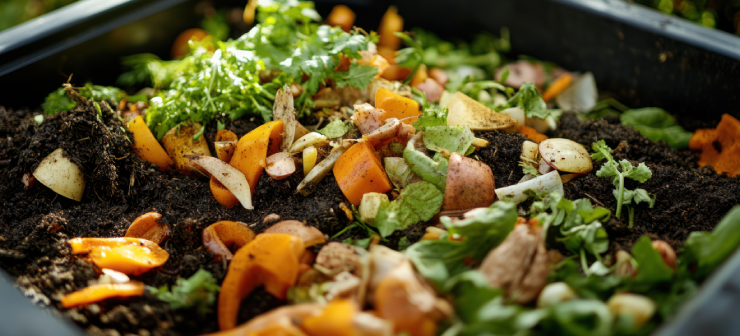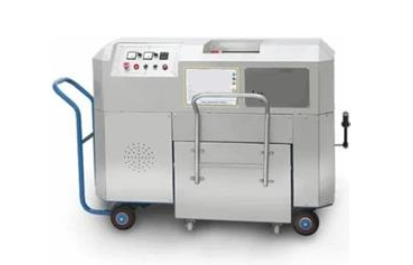Office location
Konark WaterDoc, part of Konark Group, delivers eco-friendly wastewater solutions with Technology, managing 400+ projects.
Konark WaterDoc, part of Konark Group, delivers eco-friendly wastewater solutions with Technology, managing 400+ projects.

Organic Waste Composters (OWCs) offer a sustainable alternative for managing biodegradable waste by converting it into nutrient‑rich compost. These systems use aerobic microbes to decompose kitchen scraps, garden waste, and agricultural residues in a controlled environment.
Proper insulation, temperature control, and moisture regulation ensure efficient composting, reduced odors, and lower greenhouse gas emissions. Rather than disposing of organic matter in landfills or incinerators, OWCs help close the loop—transforming waste into a valuable resource that enriches soil and supports eco‑friendly agriculture.

Konark WaterDoc is known for delivering high‑quality OWC systems, tailored to different scales—from small institutions to large farms. With deep experience in composting technologies and a strong focus on sustainability, we design composters that meet specific waste volumes, site constraints, and quality targets.
OWC systems receive biodegradable waste—vegetable peelings, yard cuttings, leftover food, etc. Inside the composter, aerobic microorganisms break down organic matter. The insulated chamber retains heat, while moisture and airflow are carefully managed to support microbial action, accelerating decomposition.
Over time, the waste is transformed into compost. The composting process includes phases like active decomposition and curing. The output is high‑quality compost that can be used in gardens, agriculture, landscaping, or for soil improvement. Retention times depend on factors like waste type, moisture, and temperature. Properly managed, OWCs prevent foul smells and lessen environmental impact.
At Konark WaterDoc, our service begins with a detailed consultation to understand your organic waste stream, site conditions, and composting goals. This lets us recommend the right OWC model and capacity. Factors considered include waste type, amount, compost quality, space, and budget.
We deliver end‑to‑end solutions: design, installation, operator training, and ongoing support. Our team ensures that your OWC setup integrates smoothly into your facility's workflow and that you have the resources to operate it effectively. Regular maintenance, monitoring, and performance optimization are part of our commitment.
>> Aerated Static Pile Composting: Organic waste is arranged in piles with embedded aeration pipes or systems that supply oxygen. The steady airflow supports aerobic decomposition and accelerates the composting process.
>> In-Vessel Composting: Waste is processed inside enclosed chambers or rotating drums. This setup allows precise control of temperature, moisture, and airflow, ensuring consistent and efficient composting.
>> Vermicomposting: Earthworms are used to decompose organic matter quickly, producing vermicompost—a nutrient-rich and microbe-packed soil amendment valued for its conditioning properties.
>> Bokashi Composting: A fermentation-based method where beneficial microorganisms break down waste in an oxygen-free environment. The output is a pre-compost material that can be further composted or directly applied to soil.
>> Windrow Composting: Organic waste is arranged in long rows, called windrows, which are periodically turned or aerated. This method is ideal for handling large volumes of waste effectively.

Konark WaterDoc, a leading OWC Manufacturer, delivers efficient Organic Waste Composters (OWC) that convert organic waste into nutrient-rich compost using controlled aerobic processes. Their insulated composters optimize temperature and moisture, ensuring fast, odor-free composting that supports sustainable waste management.
With customized designs for various scales, Konark WaterDoc offers reliable, eco-friendly composting solutions that reduce landfill waste and promote soil health across industries.